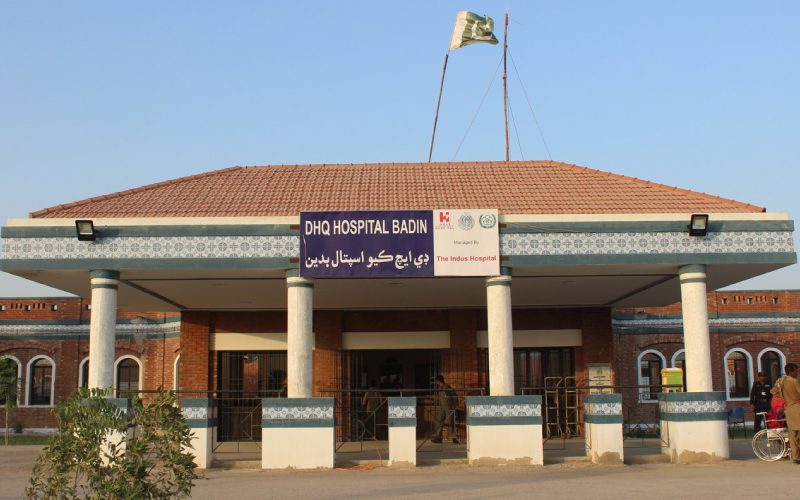INDUS HOSPITAL AND HEALTH NETWORK OPENS PEDIATRIC HEMATOLOGY AND ONCOLOGY CLINIC AT CIVIL HOSPITAL, BADIN
The Indus Hospital and Health Network (IHHN) has established a dedicated Pediatric Hematology and Oncology (PHO) Clinic at the District Headquarter Hospital, Badin as a first step towards establishing a center for childhood cancer and blood diseases.
The clinic was inaugurated on February 4, 2021 — on the occasion of World Cancer Day. Dr. Ghulam Qadir Pathan, Senior Consultant, Pediatric Hematology and Oncology will conduct the weekly clinic.
Two survivors of childhood cancer from Badin inaugurated the clinic. Dr. Shamvil Ashraf, Executive Director Medical Services and Senior Consultant, Pediatric Oncology, IHHN, other senior officials of the Network, and DHQ Badin were also present at the inauguration ceremony.
While addressing the event, Dr. Shamvil stated that the “absence of nation-wide cancer data makes it impossible to find the actual number of children suffering from cancer.”
“With the available data, it is estimated that approximately 8,000 children – under the age of 18 years – are diagnosed with cancer annually in Pakistan. Of those 8,000 cases, only about half reach a pediatric oncology unit. At present, there are only 14 centers for pediatric cancer care in the country,” he added.
There is no dedicated childhood cancer treatment center in interior Sindh and Baluchistan.
The survival rate for childhood cancer in Pakistan is very dismal between 20 to 25% while in the developed world 80% of children survive and the reason is late diagnosis, limited access, lack of awareness, and dearth of trained human resources. Early diagnosis and right treatment can lead to a better survival rate. Pakistan plans to achieve 70% childhood cancer survival by 2030.
The childhood cancer unit at Korangi Campus with 85 dedicated beds and annual new registration of around 1,000 children suffering from cancer and blood diseases is one of the largest centers in this region. The center handles all types of childhood cancer patients from birth through age 16. Out of those, 45% of patients come from Karachi, 35% from interior Sindh, 15% from Baluchistan, and the remainder come from other parts of the country and neighboring Afghanistan.
One of the mission of Indus’ Oncology unit is to improve access and quality of treatment to enhance survival of childhood cancer in Pakistan. Through the “My
Child Matters” grant of Sanofi Foundation we have been building capacity of many public sector hospitals since 2009. We are also negotiating and persuading the Government to establish new units through Public-Private Partnership so that children are treated close to their homes.
The formation of the PHO clinic at DHQ Badin is an effort to reach out to patients residing in Badin and adjoining areas. We are committed to enhancing pediatric cancer care across Pakistan through collaborations and public and private partnerships.




